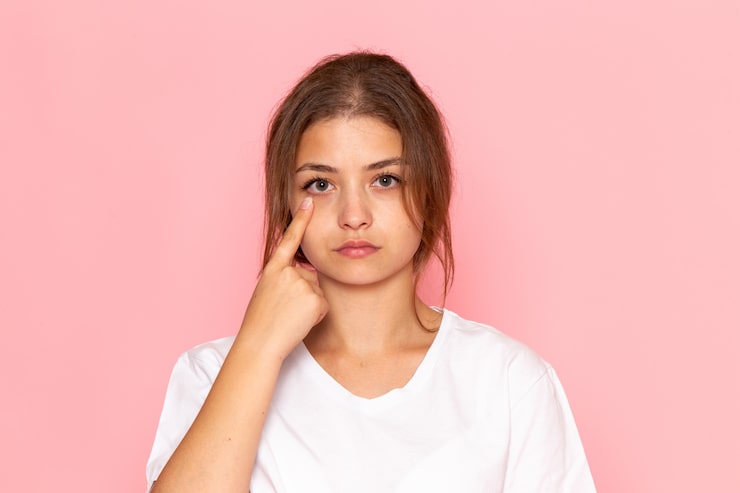Eyelids are thin folds of skin that protect our eyes. Without them, our eyes would be exposed to dust, dirt, and other irritants that can harm vision. That’s why regular eyelid care is so important.
What is eyelid hygiene?
Eyelid hygiene means keeping the eye area clean so no harmful substances stay on the skin. Eyelids help shield the eyes from contaminants and block bright light for comfortable sleep. They also help keep the cornea moist by producing oils for your tears. Every blink spreads lubricating fluid from the tear glands to prevent dryness. Given the dirt and pollution we meet daily, good eyelid hygiene is more important than ever. Regular cleaning removes trapped debris and reduces the chance of more serious eye problems later on.
Why eyelid health matters
Cleaning your eyelids regularly removes built-up dirt, environmental particles, and natural oils. If left unclean, bacteria can grow and lead to eye problems such as:
– Blepharitis
– Conjunctivitis
– Styes
– Dry eyes

Try to clean your eyelids once or twice a day to keep build-up down. A daily routine helps maintain eyelid health and prevents avoidable issues.
Blepharitis
Blepharitis is a common result of poor eyelid care. It can cause dry eyes, styes, and sometimes conjunctivitis (inflammation of the eye’s lining). People with blepharitis often have irritated, swollen eyelids and a lot of discomfort. It usually starts along the eyelid edge, clogging the glands where eyelashes grow. This can reduce eye lubrication and be especially troublesome for contact lens wearers.
Symptoms are usually obvious: red, swollen, itchy eyes; sticky or crusty eyelids; greasy eyelids; flaking skin around the eyes; and greater light sensitivity. Many cases improve with simple home care like warm compresses to reduce build-up and ease irritation, and by gently rinsing the eyelids with water.
Dry eye syndrome
Dry eye syndrome happens when your eyes don’t make enough tears — a mix of water, oils, and mucus that keeps eyes clear, moist, and protected. Without enough tears you may get red, watery, or blurred eyes and become more sensitive to light.
How to clean your eyelids
There are several products to help with eyelid hygiene. Lid wipes are a convenient option for removing dirt and easing blepharitis symptoms. Many wipes contain soothing ingredients like tea tree, chamomile, and aloe vera, and some include hyaluronic acid for lasting hydration.
You can also use two cotton pads soaked in warm water. Close your eyes, press a pad gently on each eyelid for a few minutes, then massage the lids by moving the pads up and down. Use a separate pad to clean along the lash line and the outer edges of the upper and lower eyelids, loosening debris with gentle circular motions.
Always wash your hands before and after cleaning your eyelids.